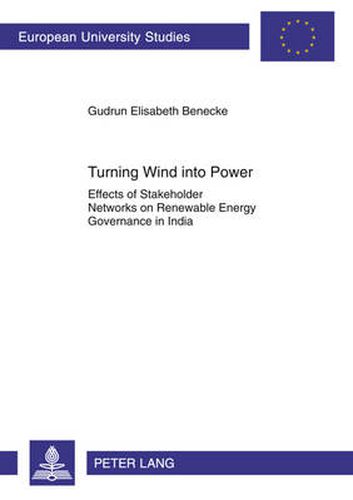Readings Newsletter
Become a Readings Member to make your shopping experience even easier.
Sign in or sign up for free!
You’re not far away from qualifying for FREE standard shipping within Australia
You’ve qualified for FREE standard shipping within Australia
The cart is loading…






Renewable energy has an important role to play as they provide solutions to pressing environmental and developmental challenges particularly in developing countries. Taking spatial variations in the case of the Indian wind sector as research puzzle, this book explores the conditions under which wind energy projects are successfully deployed in Indian states. Comparing the concrete cases of wind energy governance in Tamil Nadu to Kerala aims to understand what successful deployment requires and derives at the relevance of local stakeholder networks. The objective is to map and to examine contextual requirements for effective renewable energy governance in a developing countries setting. In this sense, the stakeholder network concept constitutes the analytical and conceptual approach to explore mechanisms and dynamics of multilevel actors’ relations. As central research result, the characteristics and dynamics of emerging local governance arrangements are a key factor explaining mechanisms and effects of renewable energy governance in the selected states.
$9.00 standard shipping within Australia
FREE standard shipping within Australia for orders over $100.00
Express & International shipping calculated at checkout
Renewable energy has an important role to play as they provide solutions to pressing environmental and developmental challenges particularly in developing countries. Taking spatial variations in the case of the Indian wind sector as research puzzle, this book explores the conditions under which wind energy projects are successfully deployed in Indian states. Comparing the concrete cases of wind energy governance in Tamil Nadu to Kerala aims to understand what successful deployment requires and derives at the relevance of local stakeholder networks. The objective is to map and to examine contextual requirements for effective renewable energy governance in a developing countries setting. In this sense, the stakeholder network concept constitutes the analytical and conceptual approach to explore mechanisms and dynamics of multilevel actors’ relations. As central research result, the characteristics and dynamics of emerging local governance arrangements are a key factor explaining mechanisms and effects of renewable energy governance in the selected states.